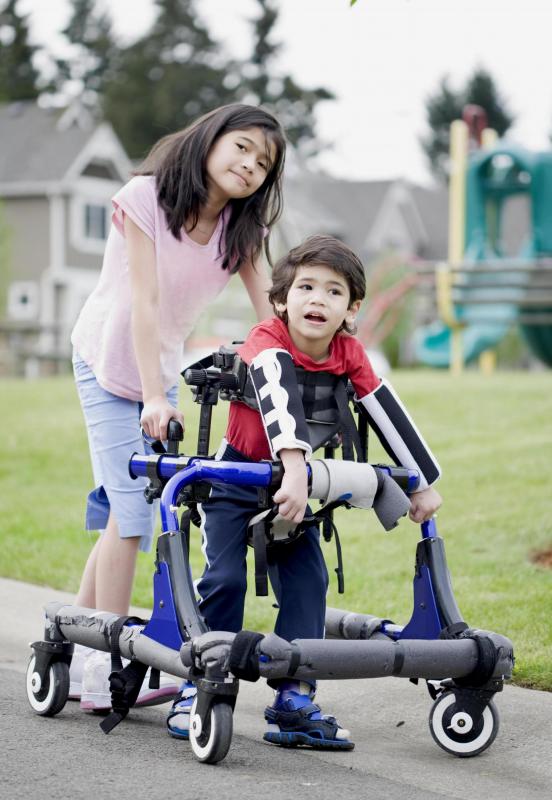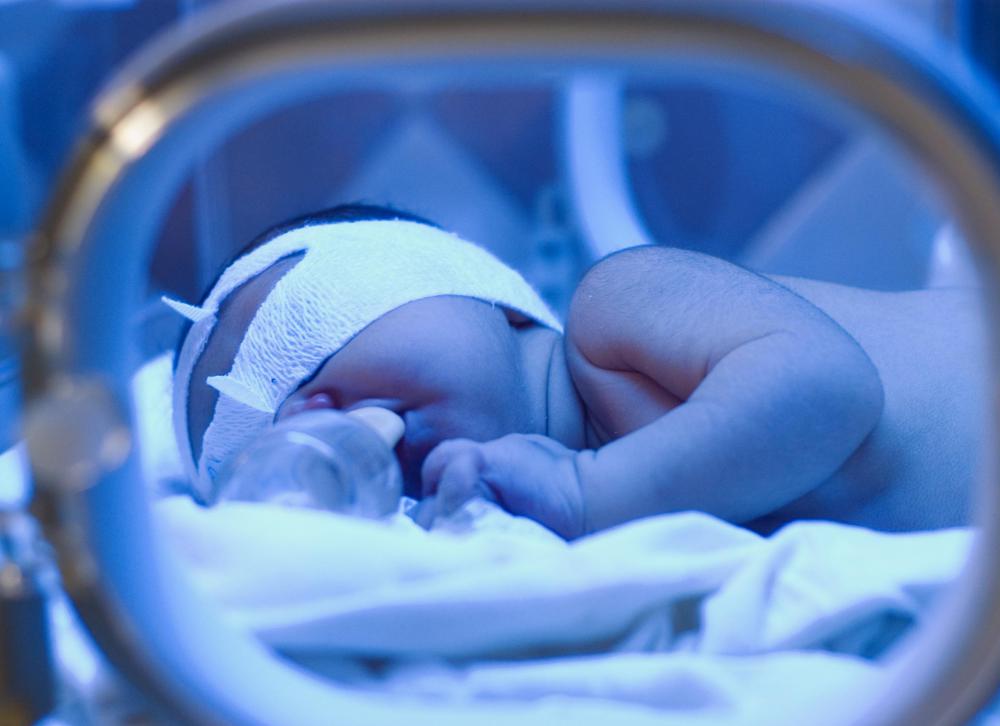At WiseGEEK, we're committed to delivering accurate, trustworthy information. Our expert-authored content is rigorously fact-checked and sourced from credible authorities. Discover how we uphold the highest standards in providing you with reliable knowledge.
What are Some Health Risks That Premature Children Face?
The normal length of a human pregnancy is about 40 weeks. Pregnancies that last for at least 37 weeks are considered full term. Thanks to modern medicine, however, it is now possible for babies to survive even if they are born after as little as 23 to 26 weeks of pregnancy. However, making it into the world isn't the end of the battle for most premature children. They often face a number of health problems, ranging form the very serious to the merely troublesome.
One of the most serious problems premature children face is immature lungs. When a child's lung tissue has not had enough time to develop in the womb, breathing difficulties are common. The lung tissue of an unborn child usually matures by the 34th week of pregnancy. When a child is born too early, however, his lungs lack a protein necessary for lung elasticity, called surfactant. This protein is necessary for making inflation of the lungs easier and preventing them from collapsing.

Since breathing problems are so common in premature children, they are often monitored for respiratory distress as babies. When necessary, mechanical ventilators are used to keep oxygen at adequate levels in a baby's body as well as to maintain the necessary air pressure in her lungs. Sometimes, an artificial surfactant is used. Fortunately, the prognosis is good, and premature children are often able to grow up and lead normal lives after treatment.

Premature children are also at more of a risk for infections following birth. Doctors often give premature infants antibiotics to help them fight off infections. Additionally, premature children are often given fluids through an IV since they are frequently unable to breastfeed or consume milk from a bottle. A premature baby may also be placed on a bed with a special warmer designed to help maintain his body temperature. Sometimes, a cellophane wrapping is also employed to help prevent the loss of heat and liquid from the premature infant's thin skin.

There are many other health issues that premature babies face, ranging from problems with the blood vessels and bleeding in the brain to apnea and anemia. These problems are most often identified in babies who are born before 30 to 33 weeks of pregnancy. After 34 weeks, complications are far less common.
The prognosis for most premature children is good, and many go on to be healthy and problem-free eventually. However, some do go on to have serious and lasting conditions, including blindness, deafness and learning disabilities. Mental retardation and cerebral palsy are not uncommon in children who were born too early. Long-term lung issues may be diagnosed as well.
AS FEATURED ON:
AS FEATURED ON:














Discussion Comments
@bythewell - I think it should be a choice as well, but one that mothers should seriously consider (with advice from their doctor), not just blow off because they don't believe in abortion.
They aren't just affecting the fetus that could be removed, they are affecting all the ones that remain. Premature birth, which will almost certainly happen if there are too many fetuses in the womb, is no light matter. If it happens too early, all of them will die.
If it happens a little bit later, all of them are at risk of long term conditions. Not to mention the risk the mother runs. So, you're risking that the babies won't have a mother as well as other problems.
I would do anything to avoid inflicting such harm on my kids.
@indigomoth - That's a really tough line to take though. How do you make that call? I mean, they have saved babies born as early as 22 weeks now, and raised them into healthy children with no ongoing problems.
There's a risk of premature birth with any baby. At some point you've just got to say that the risk is worth it. And for some women, the risk really is worth it. They can't bear the thought of terminating even one of their children.
There's always adoption if the care of the kids is the problem. I don't think people should take on too many babies at once, as a loving family doesn't need to be genetically related to you.
But I do think it should be a choice as to whether a mother has to get one or more fetuses removed.
This is one of the reasons I think that women who are pregnant with multiple children need to think seriously about having one or more of the fetuses removed.
I know there are women who think that it's a kind of Sophie's Choice and that it's a choice that no one should make. But not making the choice can have dire consequences for all your kids and you.
Most multiple births are premature and all too often all of the children are born with serious problems.
So, not only are you having to look after several babies at once, they are babies that have developmental problems and which need extra care. Care that two people simply aren't going to be able to provide.
Post your comments